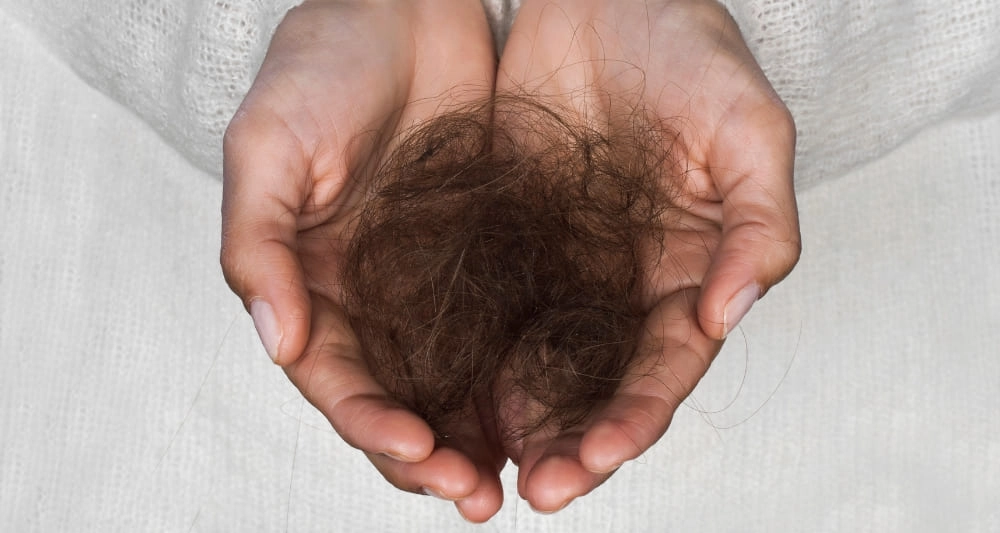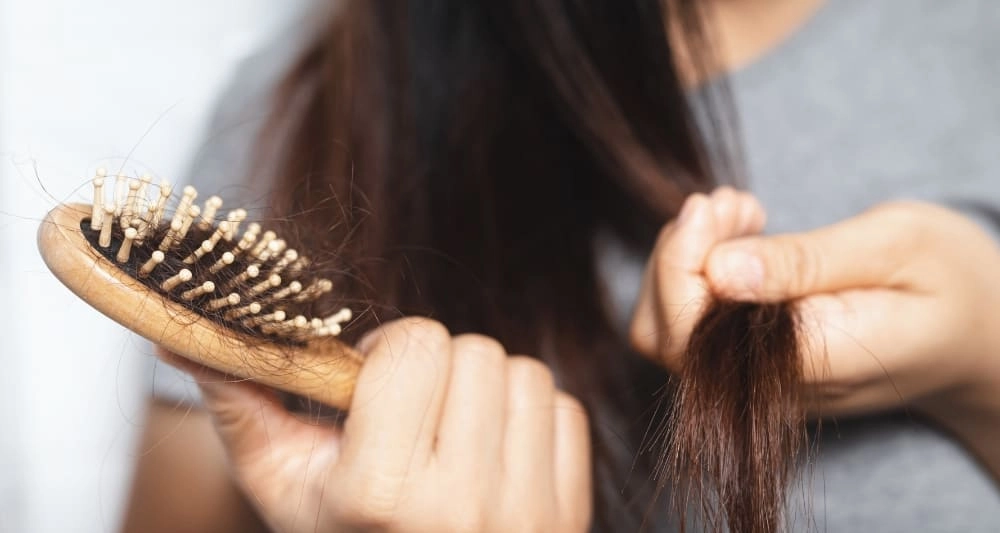المقالات
Hair loss

Hair loss, also known as alopecia, is a common condition that affects many people worldwide. It can occur for a variety of reasons, including genetics, hormonal changes, medical conditions, medications, and lifestyle factors. Here’s a comprehensive overview of hair loss:
Types of Hair Loss:
- Androgenetic Alopecia (Male or Female Pattern Baldness):
- Cause: This is the most common type of hair loss, caused by a combination of genetic predisposition and hormonal changes.
- Symptoms: In men, it typically presents as a receding hairline and balding on the top of the head. In women, it often appears as thinning hair along the crown.
- Alopecia Areata:
- Cause: An autoimmune condition where the immune system mistakenly attacks hair follicles.
- Symptoms: Sudden, patchy hair loss on the scalp, face, or other areas of the body.
- Telogen Effluvium:
- Cause: This type of hair loss occurs after a significant stressor, such as surgery, illness, or emotional stress.
- Symptoms: Diffuse thinning of hair across the entire scalp.
- Traction Alopecia:
- Cause: Caused by hairstyles that pull on the hair, like tight ponytails or braids.
- Symptoms: Thinning or loss of hair where the hair is pulled tight, typically along the hairline.
- Scarring Alopecia (Cicatricial Alopecia):
- Cause: A group of rare disorders that destroy hair follicles and replace them with scar tissue, leading to permanent hair loss.
- Symptoms: Bald patches that may be associated with redness, scaling, and pain.

Causes of Hair Loss:
- Genetics: Family history of baldness can influence the likelihood of developing androgenetic alopecia.
- Hormonal Changes: Pregnancy, childbirth, menopause, and thyroid problems can cause temporary or permanent hair loss.
- Medical Conditions: Conditions such as thyroid disease, alopecia areata, and scalp infections can lead to hair loss.
- Medications: Drugs used for cancer, arthritis, depression, heart problems, and high blood pressure can cause hair loss.
- Nutritional Deficiencies: Lack of essential nutrients like iron, protein, and vitamins can contribute to hair thinning.
- Stress: Physical or emotional stress can trigger temporary hair loss through conditions like telogen effluvium.
- Hair Treatments: Excessive styling, bleaching, or dyeing can damage hair and lead to hair loss.
Diagnosis:
- Physical Examination: A dermatologist or healthcare provider examines the scalp and hair.
- Blood Tests: To detect underlying medical conditions or nutritional deficiencies.
- Scalp Biopsy: A small section of the scalp is removed and examined to determine the type of hair loss.
- Pull Test: The doctor gently pulls on a few hairs to see how many come out, which can help diagnose telogen effluvium.
Treatment Options:
- Medications:
- Minoxidil (Rogaine): Over-the-counter topical treatment that can slow hair loss and promote regrowth.
- Finasteride (Propecia): A prescription medication for men that reduces hair loss and may promote regrowth.
- Hair Transplant Surgery: Involves moving hair follicles from a dense area to a bald area.
- Laser Therapy: Low-level laser therapy (LLLT) can stimulate hair growth in some cases.
- Lifestyle Changes: Improving diet, reducing stress, and avoiding harsh hair treatments can help.
- Wigs and Hairpieces: Non-surgical options to cover hair loss.
- Platelet-Rich Plasma (PRP): Involves injecting the patient’s own platelet-rich plasma into the scalp to stimulate hair growth.

Prevention:
- Gentle Hair Care: Avoid tight hairstyles, excessive brushing, and harsh chemical treatments.
- Healthy Diet: Ensure adequate intake of essential nutrients like iron, zinc, and biotin.
- Stress Management: Practices like yoga, meditation, and regular exercise can reduce stress-related hair loss.
- Regular Check-Ups: Monitor and manage underlying health conditions that could contribute to hair loss.
Conclusion:
Hair loss can be distressing, but understanding its causes and treatment options can help manage the condition effectively. Early intervention is key to preventing further hair loss and, in some cases, promoting regrowth. If you’re experiencing significant hair loss, consulting with a healthcare provider or dermatologist can help determine the best course of action.
